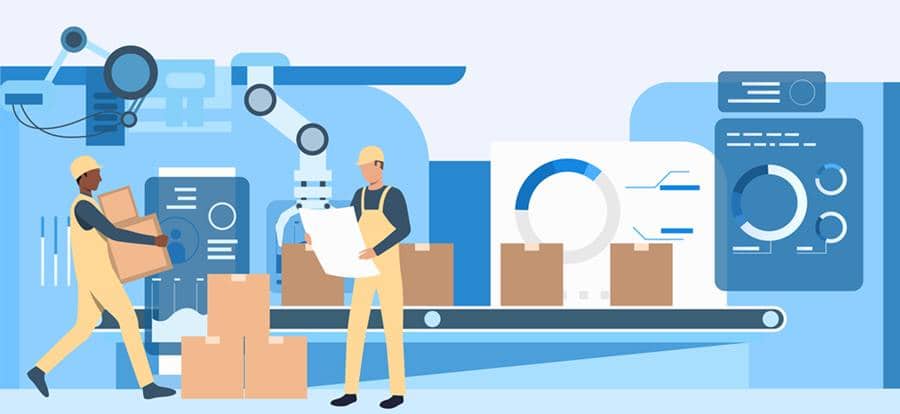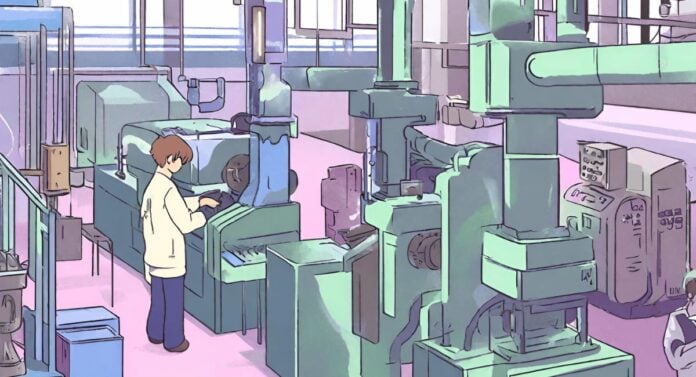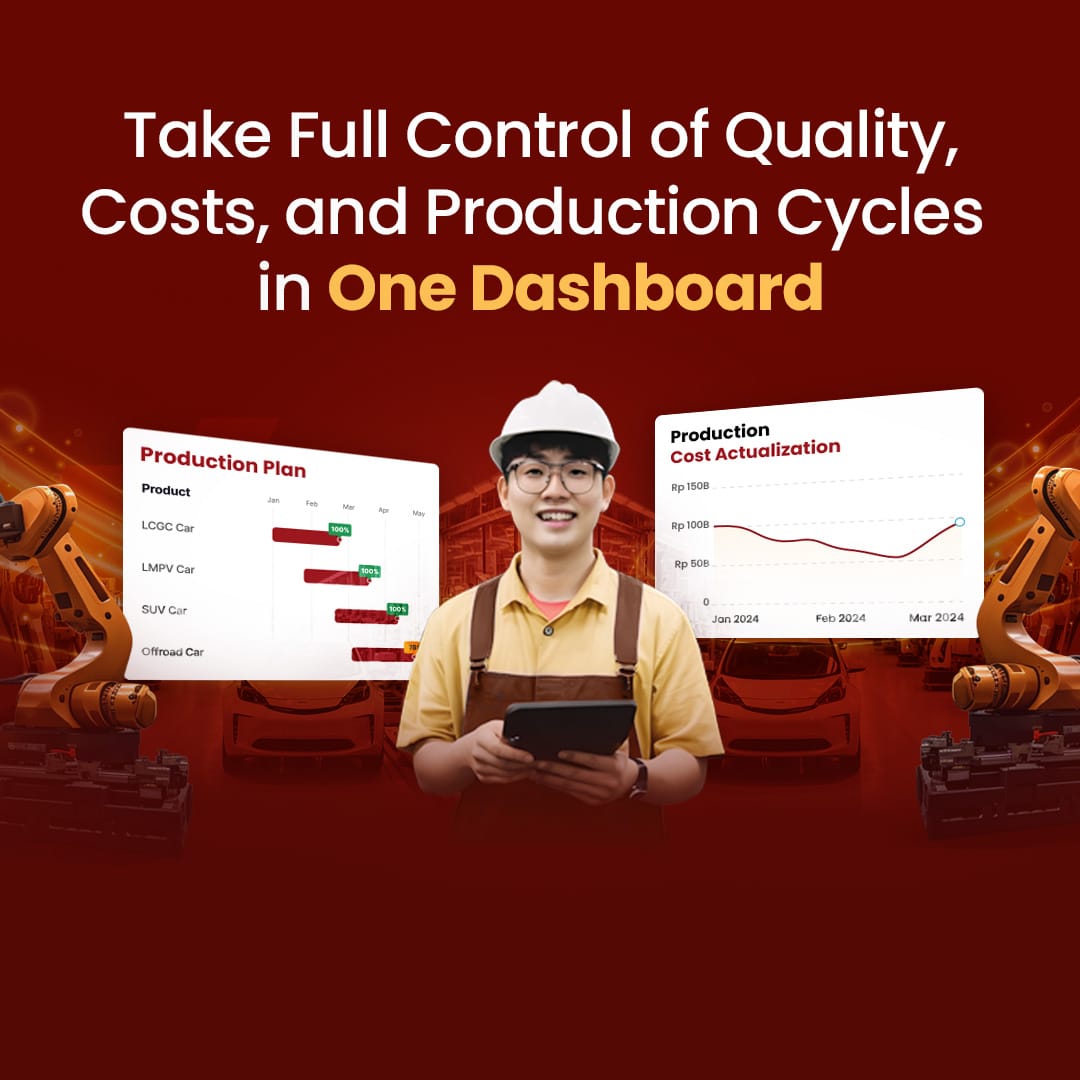The production process is a series of essential steps that transform raw materials into finished goods for consumers. It plays a critical role in business operations, ensuring the delivery of high-quality products while maintaining efficiency and consistency in manufacturing.
Managing the production process effectively requires precision, teamwork, and a strategic approach. Without proper tools or systems, businesses may face challenges such as delays, inefficiencies, and resource wastage, ultimately impacting productivity and customer satisfaction.
Simplify your production process with modern tools designed to optimize every stage of manufacturing. HashMicro’s Manufacturing Software offers features like real-time tracking, resource planning, and workflow automation, helping businesses streamline operations and enhance output quality.
This article explores the production process, its importance in manufacturing, and how to optimize it for better efficiency. You’ll also discover how technology, like manufacturing software, supports businesses in achieving higher productivity and better management.
Key Takeaways
|
Table of Content:
Table of Content
Production Process Definition
Production is defined as the activity of creating or adding value to goods. Thus, the production process is a series of stages that must pass to produce goods or services. It typically covers how to efficiently and productively manufacture products for sale to reach customers quickly without sacrificing the quality of the product.
For instance, the goods in question are objects that have physical and chemical properties and have a specific time. At the same time, services do not have physical and chemical properties and do not have a period between production and consumption.
This process also processing raw materials and auxiliary materials manually using equipment to produce a product whose value is more than the original goods. In other words, this process can also be interpreted as an activity combining various factors of production to create something beneficial to consumers.
In conclusion, those of you in the business world are obliged to understand the correct stages of this process so that the products you do are as expected it do not fail.
The Objectives of the Production Process

There are several objectives of this process that you need to know, including:
- Meeting the human needs in achieving prosperity from the availability of goods and services
- To maintain the survival of a company
- Provide added value to a product
- To meet market demand, both from domestic and international markets
- Gaining profit so that a company achieves the desired level of prosperity
- Produces export goods to increase the country’s foreign exchange sources
- Stimulates the growth of other production businesses so that they can attack unemployment
- As a substitute for products that are damaged, expired, or goods that have depleted due to the use of
The Stages of the Production Process
In general, this process is divided into four stages of production, which is as follows:
1. Planning
Everything that we do, of course, needs planning. From specific activities to decisions to do something huge and have an impact on your life. In other words, it would help if you had a plan in the production stage so that the production does not lose its direction or purpose, especially in the logistics industry.
You can speed up your workflow by using time management software, as it will allow you to organize your tasks more efficiently. This planning process is a stage in determining several things. Such as what kind of products will be made, how many raw materials are used, how much cost you need, and how much labor you are required to carry out production.
After that, the company will also design the shape of the goods because companies need information and knowledge about the types of goods to produce, their needs, and the company’s ability to carry out production activities to create a good plan.
You’ll also have to consider how to market and create demand for your product. This typically includes creating blog content, engaging in social media, writing emails or newsletters, and other channels where your target customers are.
2. Routing
Routing or determination of flow is an activity to determine and determine the sequence of activities of this process. The focus is at this stage, from the initial processing of raw materials, forming, polishing, finishing, and quality control to the distribution of manufactured goods.
At this stage, you must determine the flow accurately and efficiently to run as it should and should.
3. Scheduling
Scheduling is an activity to determine and determine when production must be carried out after the flow is made. In its implementation, scheduling considers the working hours of workers and the length of each production flow.
In practice, a master schedule will be created at this stage and then divided or broken down into several more detailed plans.
4. Dispatching
Dispatching or orders to start production is an activity to determine and establish a stage of giving orders to start production after the production schedule is set. This dispatching will include the results of the previous stages.
They are starting from raw materials, production flow, to production time. If this stage can be carried out successfully. You can be confident that your process will succeed.
Production Process Characteristics
Based on the process
There are two production process types:
- Direct production: This process includes primary and secondary production. Primary production is a production activity taken directly from nature—for example, agriculture, mining, and so on.
Meanwhile, the secondary process is a production activity that adds more value to an existing item—for example, wood to make houses, steel to make bridges, and so on. - Indirect production: Production activities that only provide results from expertise or products in the form of services. For example, mechanical services, health services, consulting services, and others.
Based on the characteristics of the production process
There are four types of characteristics:
- Extractive process: Production activities by taking products directly from nature.
- Analytical process: Production activities that separate a product into more and more similar forms to the original.
- Fabrication process: The process of converting a material into several new product forms.
- Synthetic process: The process of combining several production materials into a product form. Synthetic procedures are also often referred to as assembly processes.
Based on the production period
There are two types of characteristics:
- Continuous production: Production that uses various facilities to create products continuously. Meanwhile, the nature of the product is only a few types and produced on a large scale without being affected by season or weather conditions, and time.
- Intermittent production: Production that does not run all the time. Usually affected by changing seasons, orders, and various other factors.
Types of Production Process
In this process, it takes a different time. Based on this, the process is divided into four types:
1. Short-term process
It is a production activity that quickly and directly produces goods or services for consumers. For example, the production of food such as toast, fried foods, and others. In other words, consumers tend to get goods quickly in a short time and a matter of minutes for each production.
2. Long-term process
This process is a production activity that takes a long time. An example of this process is when you plant rice in a field or build a house. In addition, it takes a long time to make.
3. Continuous process
This process is a production activity that processes materials sequentially with several stages in the process to become a finished product. For example, factories that produce paper, sugar, and others.
4. Intermediate process
This process is a production activity that processes raw materials by combining them into a finished product. An example is the car production process, where car parts are made separately, starting from the steering wheel, frame, engine, tires, and so on. After all the details of the car are complete, the parts of the vehicle are then combined into one car.
Simplify the Production Process with Manufacturing Software from HashMicro
The above explanation has covered the definition, types, stages, and characteristics of the production process. The thing you need to remember is that you need to know the production process in depth.
However, you can also use the help of manufacturing software to help you manage your business. Manage your daily productions easily with HashMicro’s Manufacturing System. So, you can also track work orders, plan your resources, and generate insights on your manufacturing operations in one platform. Wait no more, and try the free demo today!

Related articles:


































